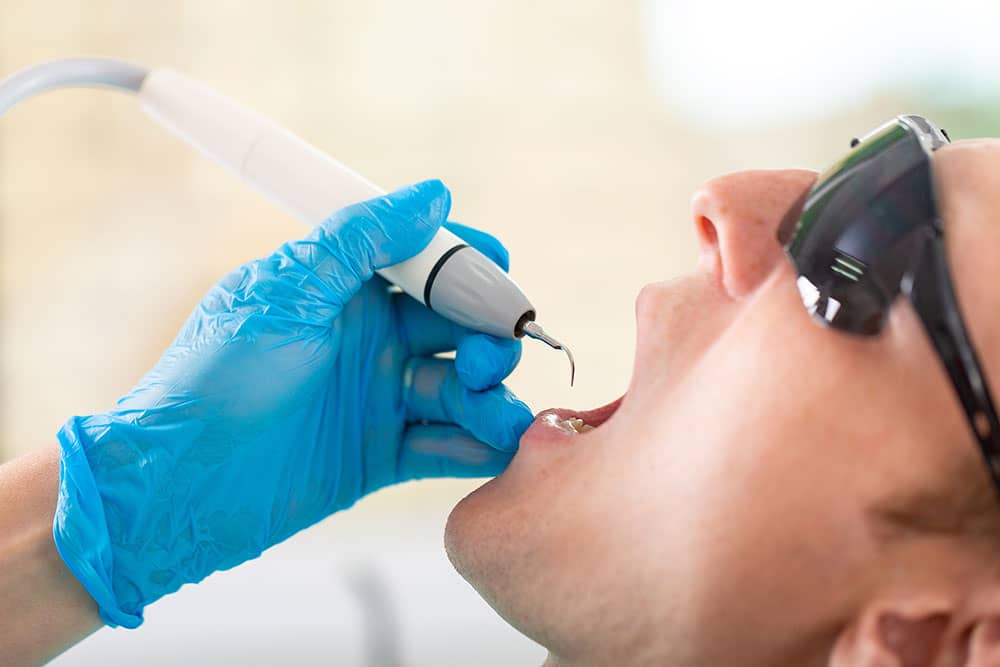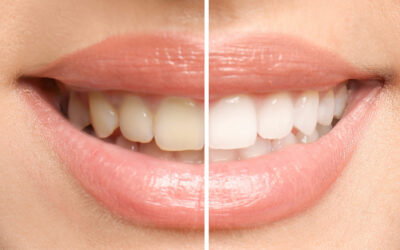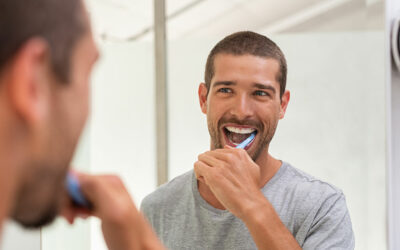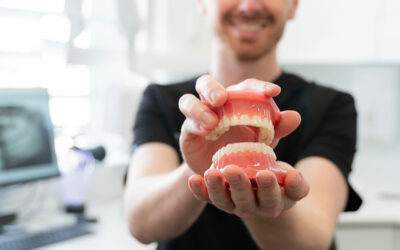Have you ever wondered why your dental hygienist spends time scraping at your gumline with a special tool? Or wondered how a cavity forms? Or wondered what you can do to keep your mouth as healthy as possible?
These questions all have one thing in common: plaque. Here, we’ll talk about what plaque is, how it affects your dental health, and important tips for preventing it.
What Is Plaque?
Plaque is a soft, sticky biofilm, often starting near the gum line, that plays a significant role in the overall health of your mouth. It is typically colourless or pale-yellow.
Although plaque is common and normal, when left unaddressed, this sticky film can harden and lead to dental issues in the future.
What Causes Plaque To Develop On Teeth?
The mouth is teeming with bacteria that collect on the surface of teeth. When we eat, especially certain foods, plaque feeds on the bacteria that arise when saliva mixes with leftover food particles. This process produces acids that attack tooth enamel and lead to decay.
What Foods Are Most Likely To Contribute To Plaque?
Certain types of food lead to a higher growth of bacteria and certain foods can be helpful in preventing plaque. Here’s a quick breakdown of some of the best and worst foods for plaque:
- Beneficial Foods for Plaque Prevention
- Fibre-rich fruits and vegetables – Foods rich in fibre can help keep your teeth and gums cleaner by getting saliva flowing.
- Plain yogurt, cheese, milk, and other dairy products – Cheese helps make saliva. The calcium and phosphates in dairy products help put minerals back into teeth and help rebuild tooth enamel to keep teeth strong and resilient.
- Black and green teas – Black and green teas contain polyphenols that help control or kill bacteria. This prevents bacteria from making acid to attack teeth.
- Sugarless gum – Sugarless chewing gum helps make saliva to rinse away food particles in your mouth.
- Fluoride foods – Products with fluoride (fluorinated drinking water, certain poultry products, certain powdered cereals, etc.) can help protect teeth and keep them strong.
- Foods That Contribute To Plaque Formation
- Sweets and sticky candies – Sugar can be harmful to teeth, especially sticky sugar found in lollipops, sticky candies, and caramels.
- Starchy foods – Certain foods get stuck in the crevices of teeth easily.
- Soft drinks – With their sky-high sugar content and acidic nature, carbonated soft drinks are a huge offender when it comes to wearing away tooth enamel.
- Substances that dry the mouth out – Alcohol and many medications can cause dry mouth. Talk with your dental provider about a fluoride gel or rinse to help combat the effects of dry mouth.
Should I Be Concerned About Plaque?
Although plaque is common and normal, it is important to clean it away regularly through a proper dental hygiene routine. If plaque builds up on teeth, it can lead to cavities, tooth decay, or even an infection.
Failing to brush and floss on a daily basis can allow plaque to harden into tartar. This tartar, which forms surprisingly quickly when plaque is not cleaned away, can stain brown or yellow.
Along with the unwanted appearance it causes, tartar can lead to gum irritation and gingivitis. It is also more difficult to remove than plaque as it cannot simply be brushed or flossed away and must be cleaned by a dentist.
Is It Possible To Prevent Plaque From Forming?
While you can’t prevent plaque entirely, you can reduce the risk of it building up and forming into tartar by brushing twice a day with a fluoride toothpaste and flossing daily. Limiting your intake of sugary foods, soft drinks, and simple carbohydrates can also help control plaque.
Rinsing your mouth with water after meals may also help by stimulating your saliva glands to help rinse away bacteria throughout the day. In a similar manner, chewing a piece of sugar-free gum may also help prevent cavities and tooth decay.
To control plaque, it is also crucial to see your dentist regularly. Your dental hygienist or dentist can scrape away any tartar and check for signs of cavities or gum disease.
How Do I Treat Plaque?
Since plaque is pale-yellow or colourless, it can be difficult to see. Maintaining a good oral hygiene routine that includes daily brushing and flossing and regular dental visits is the first step to treating plaque.
To remove plaque at home while it is still soft, brush your teeth daily for at least two minutes. Flossing is particularly good at removing any sticky film that accumulates near the gumline.
You may also want to ask your dentist about plaque disclosing tablets. These tablets stain the plaque on teeth so that you can brush and floss it away in those areas.
Does Plaque Cause Bad Breath?
While bad breath has a variety of causes, plaque is one of the main culprits for bad breath.
What Is Tartar?
Tartar, or dental calculus, is plaque that has built up and hardened. It can trap stains on teeth and lead to a brownish or yellowish discolouration.
Who Is Prone To Tartar Build-Up?
The following factors may put you at increased risk of tartar build-up:
- Increased age (as we get older, teeth become more prone to tartar build-up)
- People with braces
- Individuals who smoke
- Individuals who have dry mouth
How Is Tartar Removed?
During a professional cleaning, your dentist will carefully scrape away any hardened tartar using a dental mirror and dental scaler. If appropriate, your dentist may recommend dental sealants to help protect your teeth against decay and cavities.
Worried About Plaque Build-Up?
If you have questions about your dental hygiene routine or want to schedule a check-up, please feel free to reach out to our experienced team. We would be glad to help you evaluate your oral hygiene habits and make sure you are doing everything you can to keep your teeth and mouth as healthy as possible.
At your next visit, you can also ask if there are certain areas or spots that seem to need more attention during your brushing and flossing routine.








